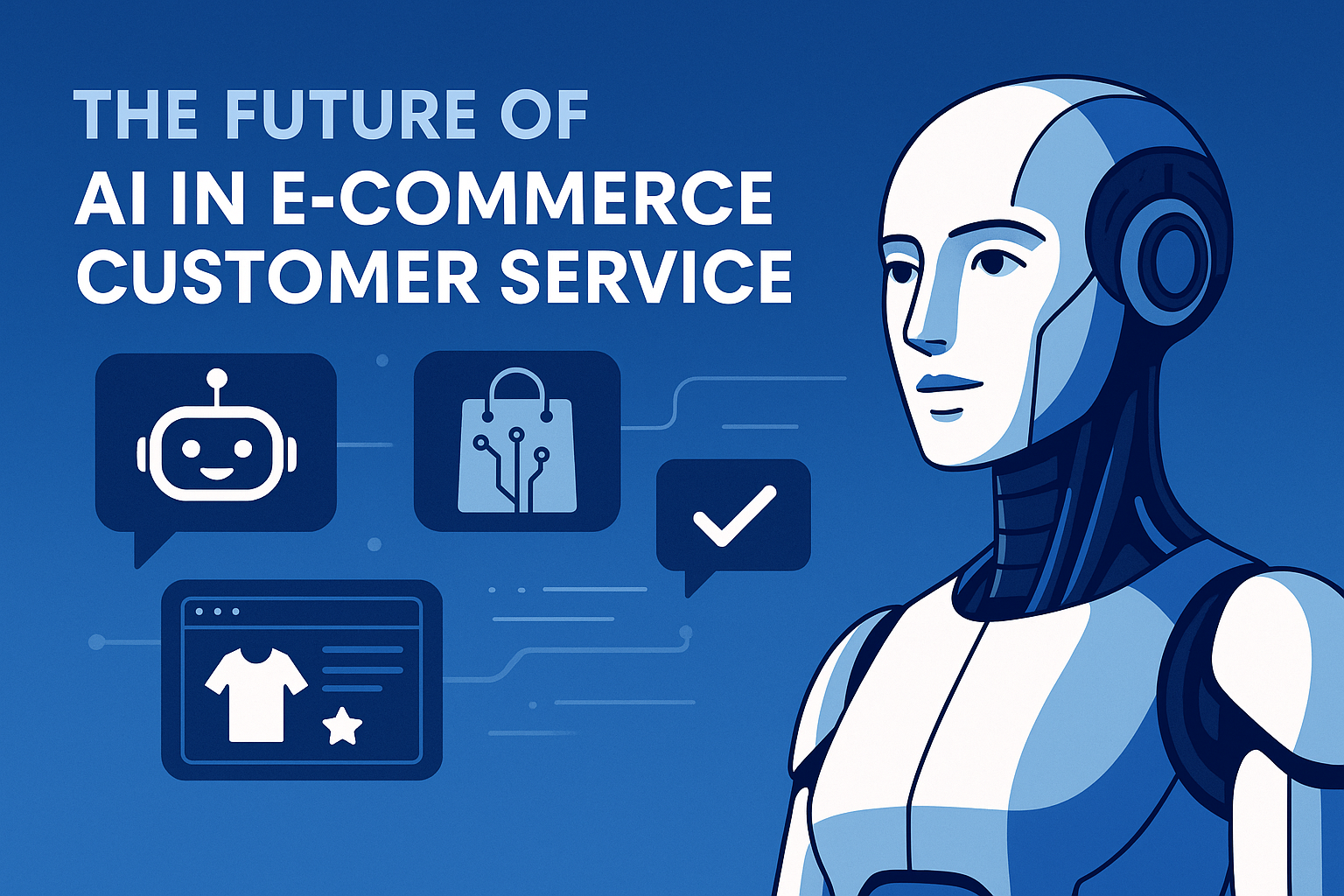


As businesses fully embrace digital transformation, e-commerce customer service is undergoing a revolution—driven by artificial intelligence (AI). In an era where consumers demand immediacy, personalization, and frictionless experiences, AI in e-commerce support is not just reshaping workflows—it's redefining how brands connect with their customers.
AI's rise in e-commerce isn't a fleeting trend—it's a permanent shift. With its ability to analyze vast datasets and deliver hyper-relevant insights in real time, AI is enabling businesses to:
According to Gartner, AI will manage 95% of all customer interactions by 2025, making it a cornerstone of any forward-looking support strategy.
AI tools now play a central role in every phase of the e-commerce customer journey. Here are four high-impact use cases:
Using Natural Language Processing (NLP), these bots simulate human-like conversations, helping customers:
Juniper Research estimates that chatbots will save businesses over $11 billion annually by reducing support costs.
The checkout stage is where many conversions fall apart. AI-powered assistants reduce friction by:
Brands using AI at checkout report 10–15% boosts in conversion rates, according to McKinsey.
Returns are a necessary pain point in e-commerce. AI simplifies and automates the process by:
This improves operational efficiency and customer satisfaction simultaneously.
Perhaps the most visible form of AI in e-commerce, recommendation engines use deep learning to serve personalized suggestions based on:
Amazon attributes 35% of its total revenue to AI-powered recommendations.
AI doesn’t just reduce overhead—it creates smarter, faster, and more proactive support systems:
Hyper-personalization isn't a “nice-to-have” anymore—it's the new customer expectation. AI makes this possible at scale:
The result? Increased lifetime value, reduced churn, and deeper brand affinity.
While the benefits are clear, deploying AI responsibly requires a strategic lens:
With AI processing massive volumes of customer data, compliance with GDPR, CCPA, and other privacy laws is non-negotiable. Invest in:
Unchecked algorithms can amplify bias. To ensure fairness and accountability:
AI's trajectory in e-commerce customer service is only just beginning. Expect to see:
AI + AR will enable virtual try-ons and immersive product demos, helping reduce returns and improve buyer confidence.
Voice-activated shopping will be a major growth area. AI will drive intelligent voice bots that assist with purchases, recommendations, and support.
AI will not only respond—but anticipate. Proactive support, pre-emptive recommendations, and personalized nudges will define the next wave of CX.
The future of AI in e-commerce customer service is one of intelligence, immediacy, and empathy. For forward-thinking leaders, this is a defining opportunity: those who invest in AI today will dominate customer loyalty and operational efficiency tomorrow.
From product assistant bots to AI-powered checkout assistants, these tools aren't just optional—they're foundational. The companies that act now will lead the customer service revolution in 2025 and beyond.
Ready to modernize your support strategy?
Try Twig for free today—your all-in-one AI solution for intelligent, scalable e-commerce customer support.
.png)